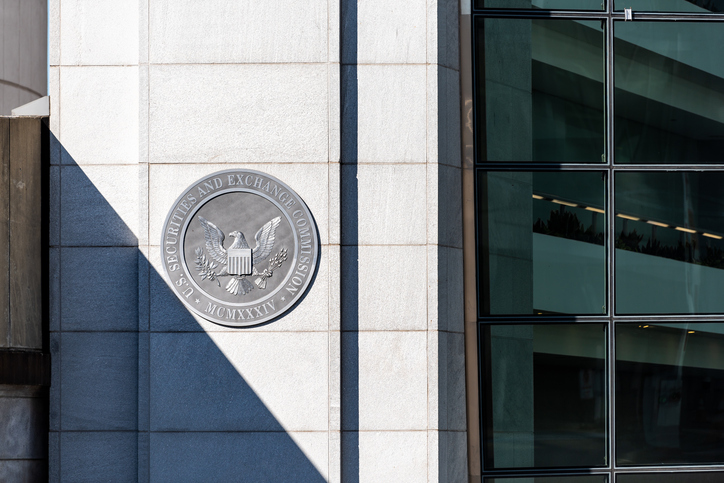A Guide to SEC Enforcement Priorities for Private Funds & Advisers
The SEC's ongoing enforcement efforts highlight the critical need for comprehensive regulations governing private fund advisers. Read our latest guide to learn about the key enforcement areas for 2025 as it pertains to private funds and advisers.
May 14, 2025

This information is provided for educational purposes only by Kohn, Kohn & Colapinto and does not constitute legal advice. No attorney-client relationship is created by accessing this content. Laws and regulations may change, and this material may not reflect the most current legal developments. If you believe you have a whistleblower claim, consult a qualified attorney to discuss your specific circumstances.
On August 23, 2023, the Securities and Exchange Commission (SEC) adopted the new Private Fund Adviser Rule and amendments.
However, these rules were almost immediately vacated in a lawsuit on June 5, 2024, in a lawsuit (National Association of Private Fund Managers v. Securities and Exchange Commission) by a three-judge panel for the U.S. court of Appeals for the Fifth Circuit, who found that the SEC lacked the statutory authority to adopt the Private Fund Adviser Rules.
Notwithstanding the new Private Fund Adviser rule being overturned, private fund advisers are still subject to both the basic fiduciary duties (of loyalty and care) under the Investment Advisers Act of 1940, but also a wide variety of other rules and compliance obligations under the securities laws.
Through ongoing investigations, harmful practices conducted by private fund advisers will continue to highlight the need for such rules, and why new rules need to be implemented. Below are the SEC’s areas of enforcement in 2025 with respect to private funds and fund advisors.
Known Enforcement Risks
Undisclosed Fees and Expenses
The SEC has emphasized the importance of disclosing fees and expenses to clients. They have been examining undisclosed compensation, particularly those arising from affiliated service providers. The SEC has highlighted that disclosures must be clear and transparent, avoiding vague language like “may.”
They’ve also scrutinized compensation from portfolio companies to advisers and accelerated monitoring fees, ensuring they are disclosed and aligned with fiduciary duties.
Misallocation of Expenses
The SEC requires advisers to allocate expenses fairly and proportionately among funds and investors. They have been scrutinizing the misallocation of expenses between funds, advisers, and co-investors. The SEC has emphasized the importance of disclosing expense allocation arrangements and ensuring they are fair and equitable.
They have also highlighted the need for clear and specific disclosures regarding a fund’s obligation to bear the adviser’s operating expenses and the effectiveness of expense allocation procedures.
Valuation and Miscalculation of Fees
The SEC requires advisers to accurately calculate fees based on disclosures and use appropriate valuation methodologies.
They have been scrutinizing valuation practices, especially for illiquid assets and emerging asset classes. The SEC has emphasized the importance of robust documentation, reliable processes, and transparency in valuation practices.
They have also focused on management fee calculations, ensuring they are reduced in accordance with fund documents and that investments are written down or written off at appropriate times.
Undisclosed Financial Conflicts
The SEC considers undisclosed loans, investments, and other financial interests as potential conflicts of interest.
They have been scrutinizing adviser-led investments in real estate projects and other principal transactions. The SEC has emphasized the importance of disclosing these conflicts and obtaining written consent from investors, especially for principal transactions.
They have also highlighted that verbal disclosures are not sufficient and that conflicts of interest disclosures in a Form ADV Brochure do not automatically resolve conflicted actions.
Undisclosed Relationships with Third Parties
The SEC considers undisclosed relationships with third-party service providers as potential conflicts of interest, even if they do not financially harm investors.
They have been scrutinizing advisers who fail to disclose such relationships, emphasizing the importance of transparency and presenting potential conflicts to the Limited Partner Advisory Committee (LPAC).
Emerging Enforcement Risks
While the focus on fiduciary failures remains, the prominence of policies, procedures, and practical interactions with investors is increasing. This is evident in areas like Material Non-Public Information “(MNPI”) controls, restructurings, cybersecurity, ESG investing, the Marketing Rule, cryptocurrency, and electronic messaging. Below is an overview of emerging enforcement concerns:
MNPI Controls and Risk Management
The SEC has increased its scrutiny of private fund compliance professionals, focusing on ensuring they independently verify investment team members’ representations regarding material regulatory risks.
The regulator has highlighted the importance of written policies and procedures to prevent the disclosure of MNPI and ensure compliance professionals are sufficiently inquiring into potential MNPI-related risks.
Restructuring Risks
The SEC is closely examining adviser-led fund restructurings, focusing on valuations used in secondary transactions and other adviser-led transactions. They are also interested in ensuring that investors receive informed consent for such transactions. Their areas of focus also include the timing and completeness of investor communications.
Cybersecurity
The SEC considers cybersecurity a significant risk due to increased cyberthreats. They are focusing on ensuring firms are complying with new rules requiring advisers to have adequate cybersecurity policies and procedures in place to protect customer data, prevent unauthorized access, and respond to incidents effectively. The SEC expects asset managers to disclose cybersecurity incidents and breaches to relevant parties, even if there is no direct financial harm. Failing to do so can result in enforcement actions and penalties.
ESG Investing
The SEC will continue scrutinizing ESG disclosures to identify material misrepresentations.
They have designated resources to assess information across registrants and identify compliance violations related to ESG strategies and statements. The SEC has adopted a final rule to standardize client-related disclosures by public companies and is expected to issue a final ESG rule for investment advisers. Even prior to the adoption of that rule, advisers must comply with the Marketing Rule and the anti-fraud rules in Section 206 with respect to their ESG statements and strategies.
Advisers must also consider evolving state issues, litigation challenges, and investor preferences.
Marketing Rule
The SEC has continued to focus on the Marketing Rule, particularly regarding the use of hypothetical performance in marketing materials.
They have settled with multiple investment advisers for violating these rules, emphasizing that advertising hypothetical performance to a mass audience requires sufficient information about the audience’s financial situation and investment objectives.
The SEC has also highlighted the importance of maintaining substantiation documents, performance disclosures, and written policies and procedures related to marketing practices.
Crypto and Digital Assets (and Emerging Technology)
The SEC has increased its focus on digital assets, including their offers, sales, recommendations, and compliance practices. They have proposed new rules that may impact custody of digital assets and have emphasized the importance of understanding exposure to this asset class.
The SEC has also shown interest in emerging financial technologies, such as AI and trading automation. They have warned against “AI-washing” and are expected to continue monitoring and regulating the use of these technologies in the private fund industry.
Electronic Messaging
The SEC has focused on enforcement actions related to off-channel communications, obtaining nearly US$2 billion in penalties.
They have scrutinized record-keeping practices for electronic communications, emphasizing the importance of maintaining required records securely. Common violations include failure to maintain text and other messages on authorized and unauthorized devices, and failure to monitor and enforce record-keeping policies.
While the SEC has not provided specific guidance on when investment committee documentation may constitute an investment recommendation or advice, maintaining such communications is crucial to avoid regulatory risks.
Conclusion
The SEC’s ongoing enforcement efforts highlight the critical need for comprehensive regulations governing private fund advisers. Despite the recent legal setback, the identified areas of violations, including undisclosed fees, misallocation of expenses, valuation practices, conflicts of interest, and emerging risks, underscore the urgent need for clear and enforceable rules.
Reporting Violations: SEC Whistleblower Program
The SEC’s whistleblower program was established by Congress to incentivize whistleblowers to report violations of securities law, such as the ones listed above.
The Commission is authorized to provide awards to those whose information leads to sanctions exceeding $1 million. The award can range from 10% and 30% depending on the quality of information, timeliness of reporting, one’s involvement in the violation, among many other factors.
The program also offers protection against retaliation and anonymous whistleblowing to maximize the effectiveness of bringing such violations to light.
Learn more by reading SEC Whistleblower Program: A Guide to Reporting Financial Fraud
Seeking Legal Assistance
Our staff is comprised of veteran whistleblower attorneys, including former SEC Commissioner Allison Herren Lee and former SEC Enforcement Senior Counsel, Andrew Feller. If you’d like to speak with an expert securities fraud attorney regarding a potential violation, get in touch with us today. Your consultation is free, and in many cases, we don’t get paid unless we get results.
Our Firm’s Cases

$125 Million in Awards
We have successfully represented a number of SEC whistleblowers, preserving their anonymity and securing sizable whistleblower rewards. In one case, we helped our client receive one of the ten largest whistleblower awards ever granted by the SEC.





